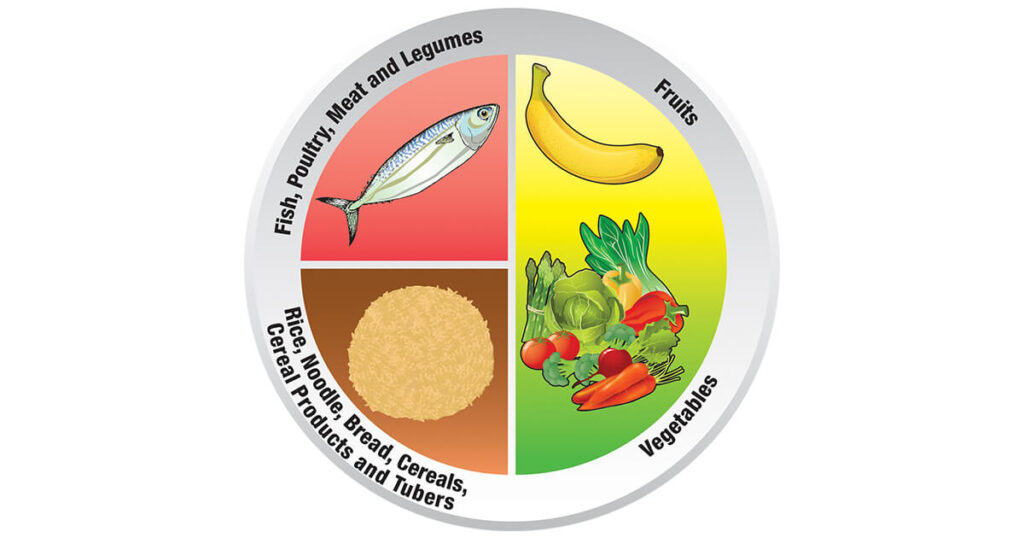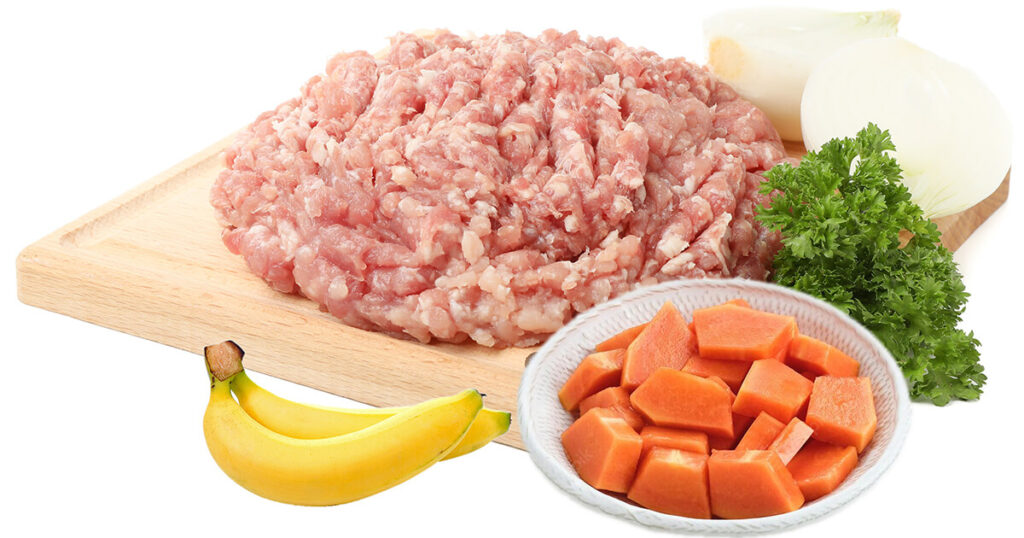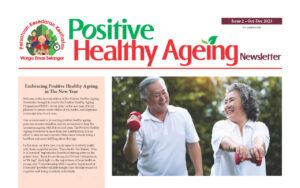By Prof. Dr. Hamid Jan Bin Jan Mohamed
Lecturer & Nutritionist , Positive Healthy Ageing Programme Malaysia

With aging, comes a variety of changes in terms of physical and psychological aspects. One of the changes is nutritional needs. We all know that nutrition is an important element that influences our health. And different nutritional needs are required across different stages of life. For example, older adults have different nutritional needs compared to adolescents or adults. So, how can we meet our nutritional needs as we age?
Nutritional challenges of aging
Before we proceed, we first need to be aware of the changes and challenges associated with aging. One common issue is reduced nutrient absorption and digestion ability. This is caused by several factors such as the decreasing amount of saliva, which makes it more difficult for older adults to swallow food, as well as decreasing secretion of stomach acid and weaker muscular contraction along the digestive tract, leading to slower digestion. These physiological changes contribute to a decreased efficiency in absorbing and utilising key nutrients required by the aging body.
Reduced oral health is another common issue. Tooth loss or the use of dentures that do not fit properly among older adults can make it more difficult for them to chew and eat foods. Hence, some of us may prefer to eat softer foods, limiting our food choices. We may also have a lower food intake due to this problem.
Aging also tends to cause a reduced appetite and a diminishing sense of taste and smell. Apart from that, it is typical for older individuals to live, thus eat, alone. These may result in a decreased food intake. Plus, medical conditions and the use of medications may also affect nutritional needs. All these factors are putting older adults at a higher risk of malnutrition such as nutrient deficiencies. In fact, 3 in 10 older adults in Malaysia have been found to be at risk of malnutrition.
Nutritional tips for the elderly
Thus, how can we eat healthily and meet our nutritional needs as we age? Here are some guidelines:
- Focus on a nutrient-dense diet. Nutrient density is a measure of the amount of beneficial nutrients in a food in proportion to its energy content. A nutrient-dense diet refers to meals that contain higher levels of vitamins, minerals, proteins, carbohydrates, healthy fat, and other important nutrients. On the other hand, an energy-dense diet is high in calories and may lack important nutritional values, i.e. foods that are high in sugar and fat.
Several local studies have shown that older adults in Malaysia are not consuming enough key nutrients that are important, e.g. protein, B vitamins, vitamin D, iron, calcium, and dietary fibre. While older adults generally need more nutrients, it does not mean that we need to eat a bigger portion of meals than what we typically have when we were younger. What is more important is to have meals that are packed with nutrients. Hence, having a nutrient-dense diet is vital to ensure achieving the nutritional needs.
What we can do is to include in the diet foods that contain higher vitamins, minerals, and dietary fibre, for example from lean poultry, fish, eggs, fruits, veggies, whole grains, legumes, nuts, seeds, milk, and dairy products. Older adults should also adopt the Malaysian Healthy Plate ‘Quarter-Quarter-Half’ Guide to help achieve balance and the right proportion of different food groups during each meal.

To help increase the appetite, use an assortment of ingredients when preparing foods to give more colours to the dishes and increase variety in their diet. A variety of natural herbs and spices can also be used to enhance the flavour of the dishes and encourage to eat healthily.
- Avoid empty calories. These are foods that provide little nutrients, e.g. sugary beverages and foods, fried foods. Apart from getting enough nutrients from nutrient-dense foods, it is equally important for older adults to maintain a healthy weight by reducing the intake of empty calories. With too many empty calories, older adults can easily gain extra fat around the belly area, thus increasing the risk of many health conditions. Plus, as we get older, we do not have to take as many calories as we used to when we were younger since we are typically less active as we age.

- Overcome chewing difficulties. Older adults with chewing difficulties when eating foods need to pay attention to the food texture so that it is easier to eat daily meals. Here are some tips:
- Preparation and cooking: Chop foods like fruits or bread into bite-sized pieces so that it is easier to chew. Also, choose soft vegetables such as leafy greens with tender leaves and shoots, and make sure that they are well cooked.
- Choosing ingredients: Go for meat and poultry that are skinless and boneless, such as minced or shredded meat and poultry, or other protein sources, like flaked fish, steamed eggs, soft tofu, etc. When it comes to fruits, choose those with a soft texture, e.g. bananas, small pieces of papaya, ripe peaches, pears, etc.
- Do not forget to visit the dentist regularly to maintain oral health and make sure that dentures fit properly.

- Remember to practise safe food handling. This is also important as the risk of foodborne illnesses can increase with age due to a decline in the immune system function. Always wash your hands before preparing, cooking, and having food, and make sure ingredients and foods are stored properly.

- Hydration is important too. Our body’s ability to conserve water is reduced as we age. Older people tend to be less aware of thirst due to a weaker thirst response, hence it is important to aim to drink regularly (about 8 glasses of water per day) to prevent from being dehydrated. It is best to limit sugar intake in drinks too. Though, older adults with medical conditions who need to restrict fluid intake should adhere to doctor’s and dietitian’s advices.
How about supplements?
Dietary supplements are products that are intended to supplement the diet. They are available in various types, e.g. herbal products, multivitamins, multi-minerals, fish oil, tonics, bee pollen, etc. Typically, supplements are not offered in food forms, but in different pharmaceutical dosages or forms, e.g. pills, liquids, extracts, capsules, or powders.
Some older individuals take dietary supplements regularly, believing that these products may improve their health status and reduce the risks of various diseases. Indeed, supplements can be helpful for older adults as we are more likely to not meet our nutritional needs through daily diet due to multiple reasons.
It is however imperative that we seek the advice of doctors, pharmacists, dietitians, or nutritionists first before taking supplements. Find out what type of supplements are needed and the proper way and schedule of taking them. Do know that supplements are not as strictly regulated as medications, so we have to be mindful since some supplements may be without sufficient scientific support for their claims. Be wary of supplements that make sensational claims, e.g. it makes you feel better, cures diseases, or helps you live longer. And do not assume that more is better when taking supplements.
Seniors with medical conditions should be particularly careful before taking supplements. Some supplements may have harmful interactions with medications. For example, some herbal supplements, high-dose vitamin E, and fish oil supplements may interact with blood-thinning medications and could prevent them from working as they should. Consult a doctor if there is any concern before taking any supplement.
Good nutrition is vital for our well-being, no matter what our age is. This is especially true for the elderly. Good nutrition helps older people to stay healthy, prevent illnesses, and manage certain health conditions as we age. It is never too late to start eating healthier. Start today!


